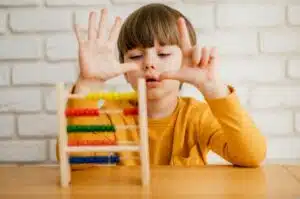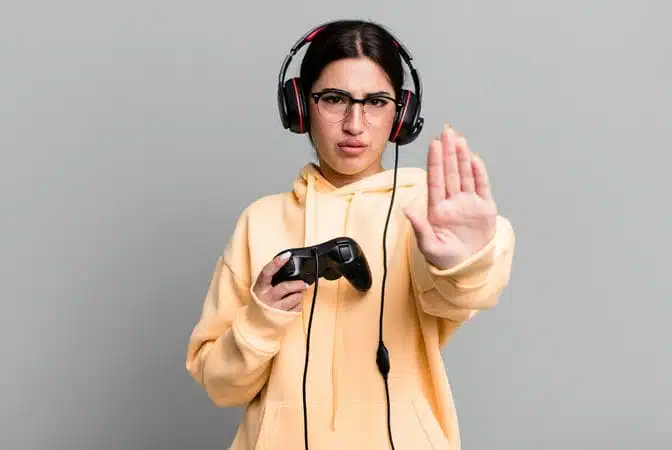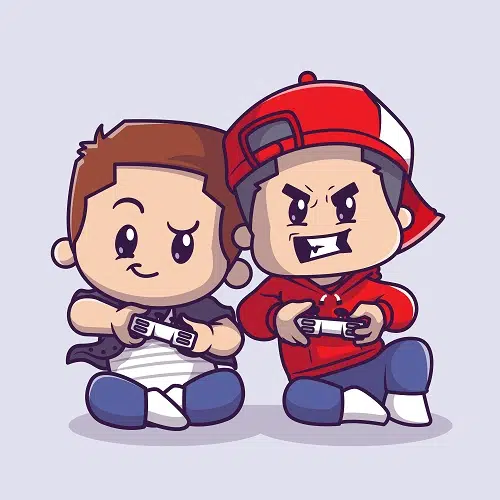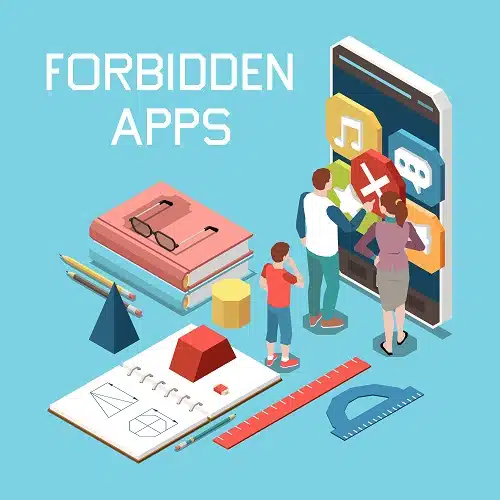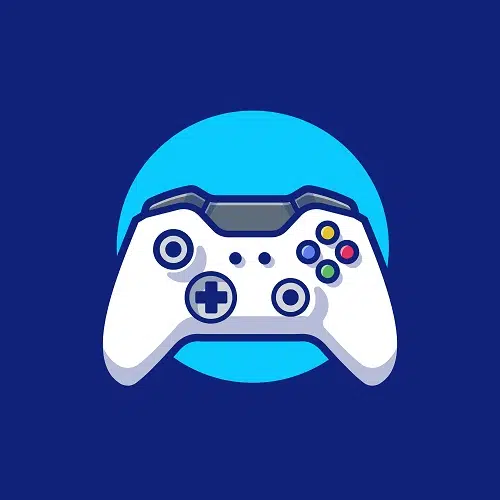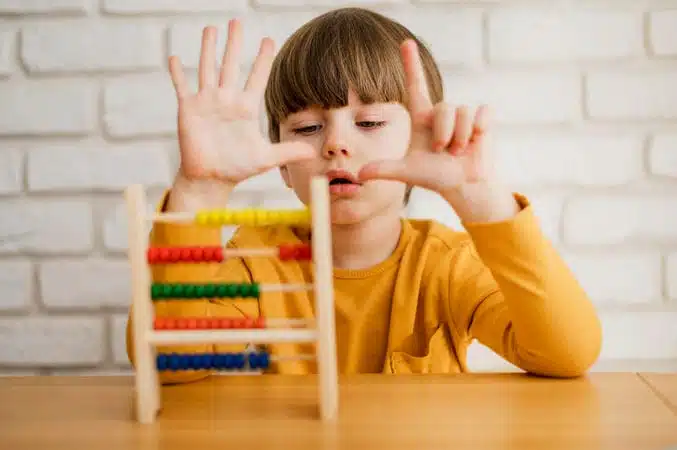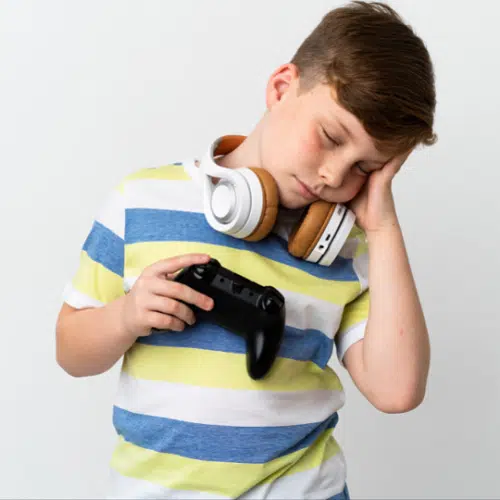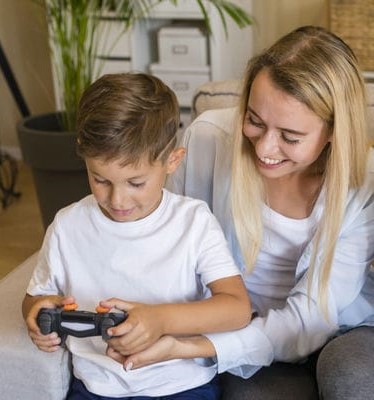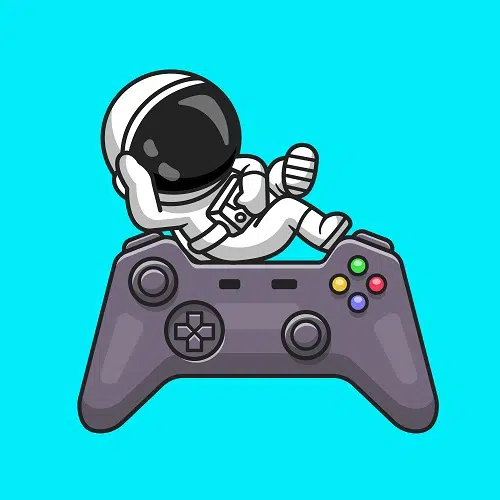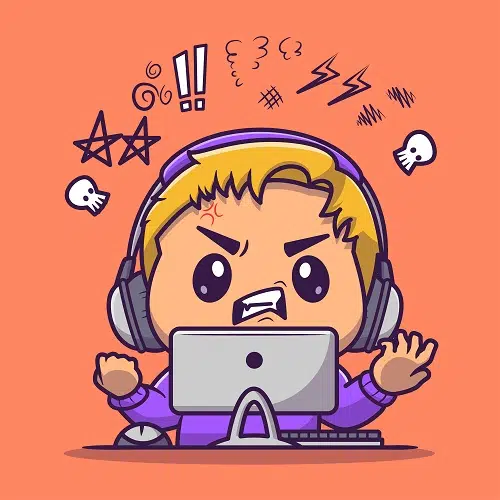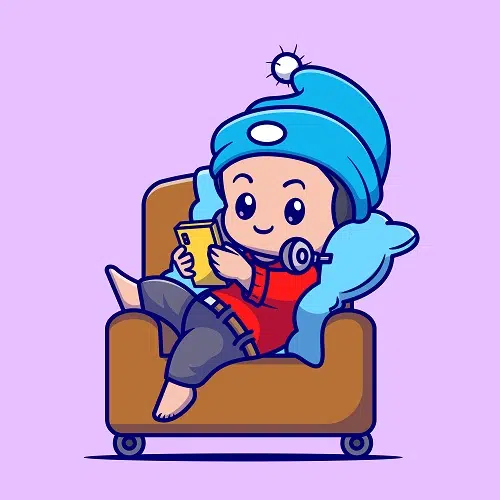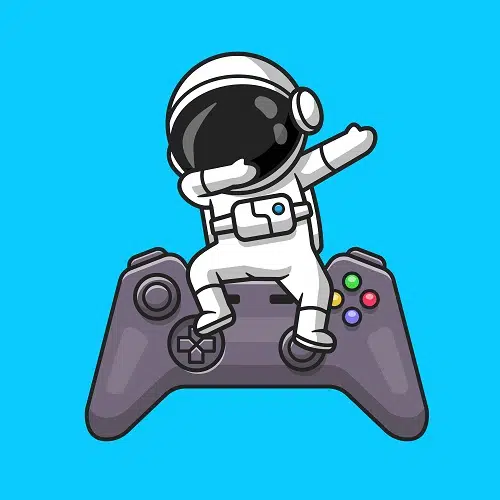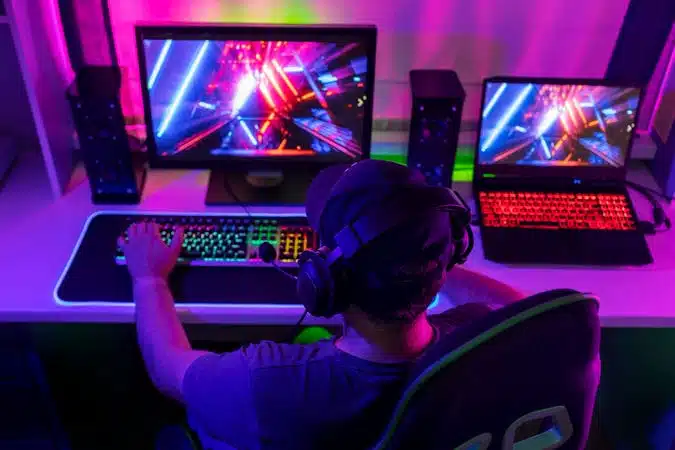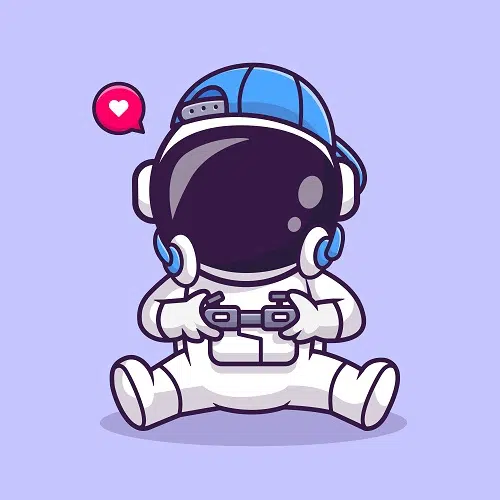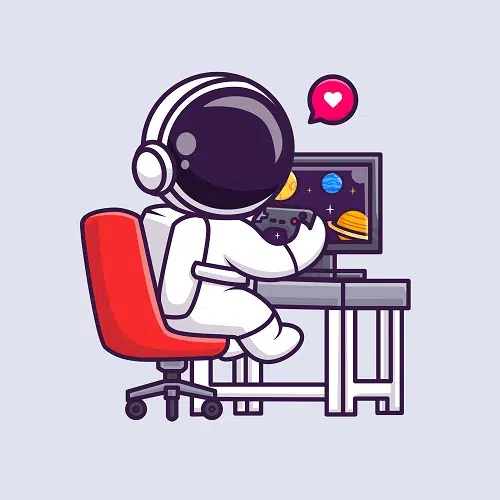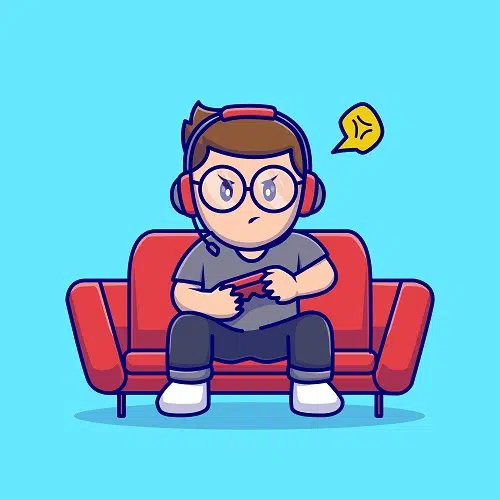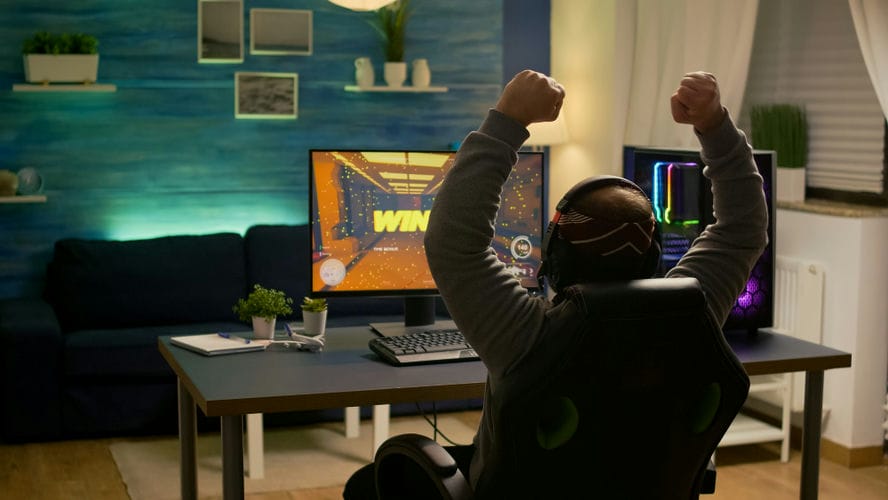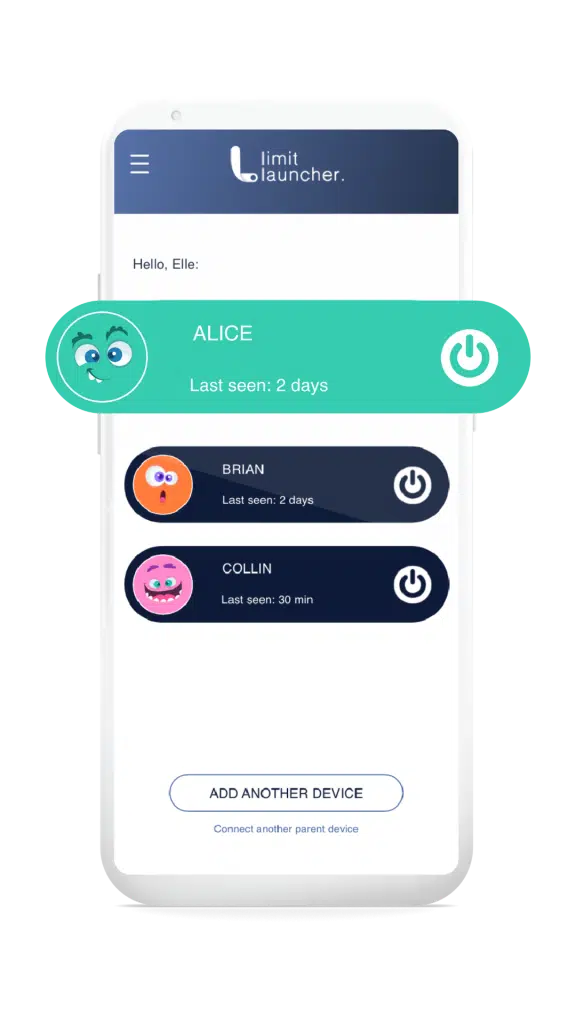Playing video games is a normal part of childhood and has been a staple in home for nearly fifty years when the 1970s game Pong first hit the stores. Since Pong, there have been gaming consoles and smartphone apps that give hours of video game play. But, parents have asked when this harmless hobby may turn into a gaming addiction.
A Game Addiction Test can be very helpful to examine whether your child’s video gaming may be affecting his or her psychological, physical, behavioral, and relational well-being. After taking the test in this article, you can determine whether our Limit Launcher Parental Control App for Gaming Solutions can help.
Throughout this article, we will give you the information needed to test whether your child has a gaming addiction. It all comes down to four areas of concern: psychological, physical, behavioral, and relational issues. Use our test to make observations, and then see if you may have to start monitoring your child’s game play.
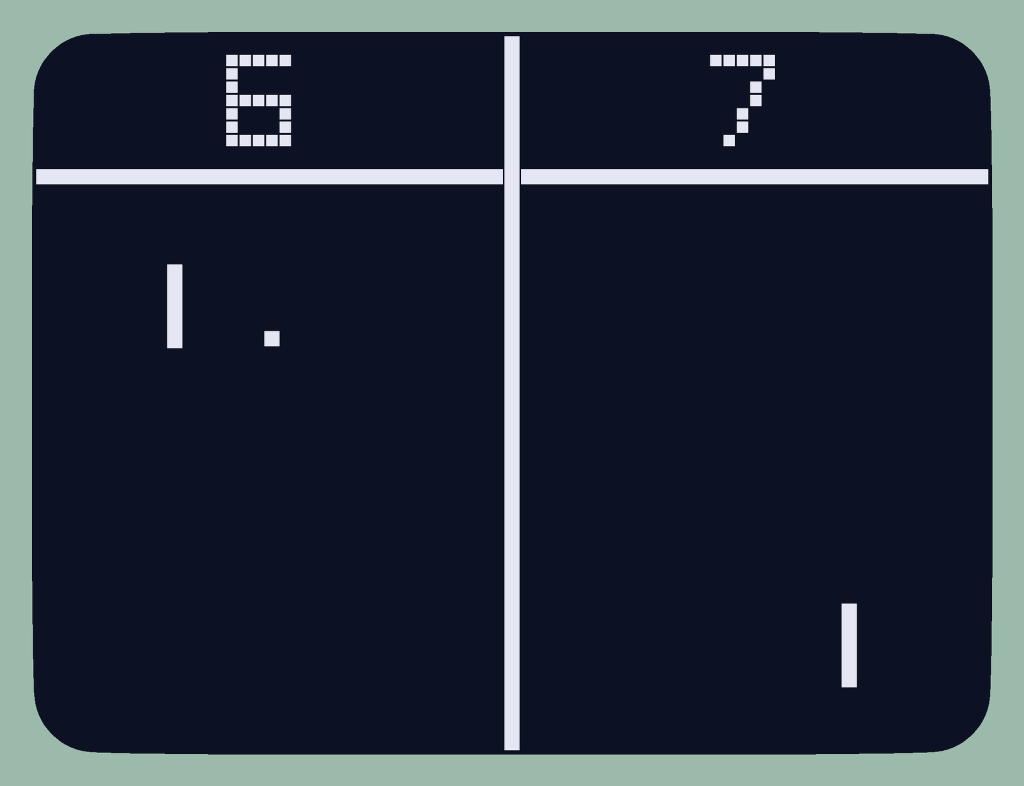
Does Your Child Need a Game Addiction Test?
The World Health Organization added gaming disorders to its list of medical health conditions in 2018 and details the many different symptoms and signs of this addiction. If your child spends hours upon hours playing video games and it is affecting his or her psychological, physical, behavioral, and relational health, you will want to determine:
- Does my child have a video game addiction?
- What are the signs for addiction?
- How can I read these signs to see if my child is an addict?
- Do I need a parental control tool to manage my child’s online gameplay?
Despite the fact that your child may enjoy playing video games, this does not mean he or she is a game addict. However, if the hours playing games has escalated into their life and is resulting in negative effects and consequences. You may want to consider a parental control tool that manages online play. Before taking our Game Addiction Test, ask yourself the following:
- Has my child become anti-social as a result of playing video games?
- Has my child’s grades plummeted as a result of video games?
- Does my child have trouble sleeping and/or is moody?
- Has my child lost interest in life outside of video games?
You need to consider the above questions when deciding whether or not to test your child for an addiction. Below will discuss how video games may have turned into your child’s addiction, some benefits of video games, and how you may know if your child is addicted. Then, we offer a game addiction test of common signs.
Video Gaming Can Turn Into an Addiction
The first misconception about video gaming as an addiction is that this only applies to video game consoles, such as games played over Xbox or Playstation. This is far from the case; video game addiction can include playing games on a smartphone, desktop, or tablet as well as a video game console. These games are popular with children.
If you noticed your child stays in his or her room for hours playing video games, it is normal to wonder if your child is addicted. Yet, many scientists have remarked that most video gaming addictions can go away on their own without outside treatment. However, video games are designed to be addictive, making it a problem similar to gambling addiction.
Some video games capitalize on single-player mode that requires the player to complete a goal or mission. Children can play on their own and may take hours to fulfill the goal and win a prize. Online multiplayer games involve playing with others from all over the world and are designed to “hook” the player in for long periods of time.
Multiplayer games can be addictive because, many times, they never have an end. Instead, the players just continue fighting missions together over and over in different situations. The games keep the players from leaving by offering incentives, such as better gear, weapons, coins, or other rewards. There is never an end.
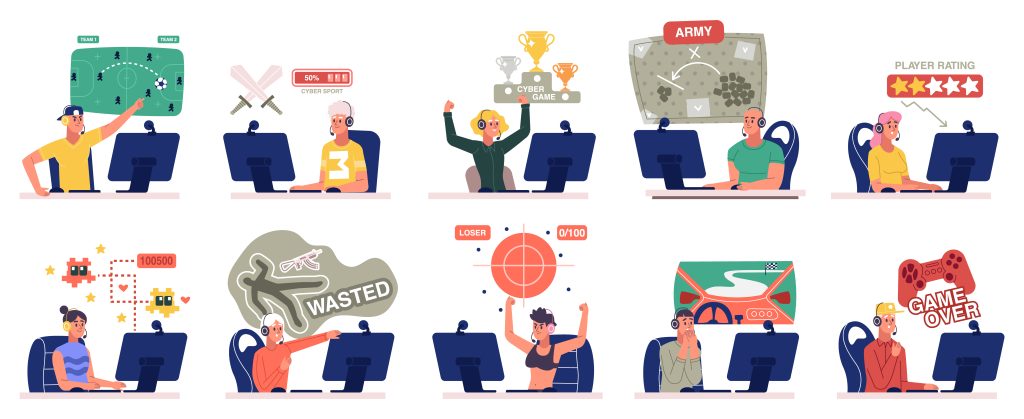
There Are Some Benefits of Video Games
The fact that your child enjoys playing Pokemon Go for hours doesn’t mean they’ve become addicted. Your child could actually play video games for hours and never become addicted. There is a huge difference between enjoying a game and the video game consuming his or her life. Video game addicts will constantly think about their next “fix.”
Video games can actually have many benefits to a child’s psychological growth, motor skills, and even physical health. For example, studies have shown that playing video games can help with selective and divided attention. Playing video games can also help with motor skills, which is why the Nintendo Wii has been used in retirement homes! If you would like to learn more about the benefits of video games, click here.
That being said, studies in the journal Pediatrics have discussed how playing video games on an excessive basis could lead to many different issues in children. Including depression, social phobia, anxiety, poor grades, and increased hostility. Not only that, but the study concluded that these negative issues can last well into adulthood.
If you are worried that your child has a video game addiction, below are some signs that can determine whether or not you need to take action. Action does not have to be therapy or medication. Instead, you should start with our Game Addiction test to see if there is, indeed, a problem with your child that needs solving.
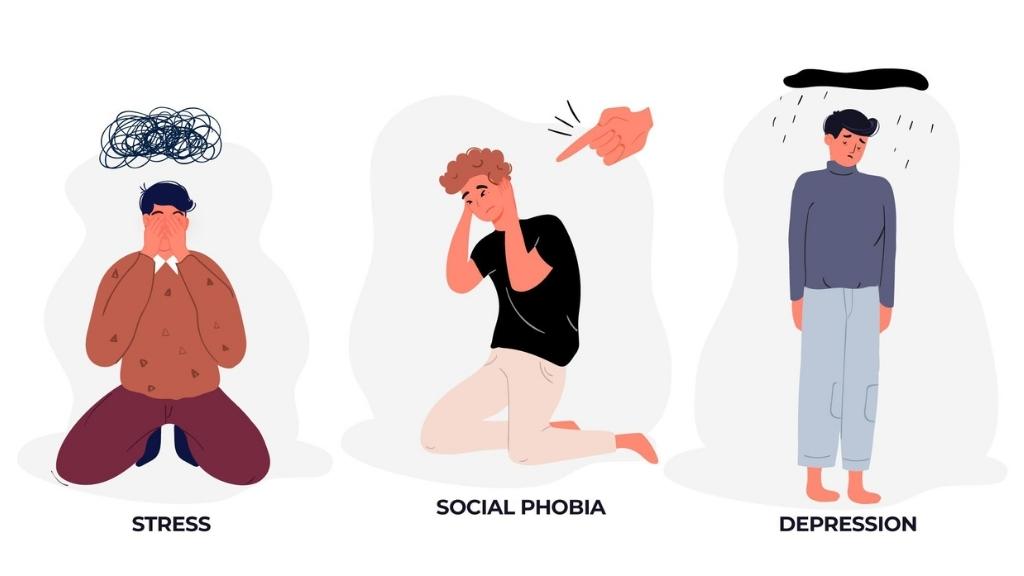
How Do I Know If My Child is Addicted to Video Games?
Let’s say your child runs home from school, grabs the PlayStation excitedly, and starts immersing himself into Fortnite; that by no means determines that your child is addicted to video games. Many kids love playing video games for hours, yet when you tell them it is time to stop, they may complain (as most kids do) but eventually turn off the console.
Video games have become the norm with children, so even if your child spends hours with a video game controller in hand, that does not equate to addiction. There are signs. In any case, that can serve as an indication of the need for a formal test. Then, you may determine that parental controls are required to turn off the game.
Video game addiction can negatively affect all aspects of a child’s life: physically, mentally, socially, and even academically. These effects can further be categorized into four groups:
- Psychological
- Physical
- Behavioral
- Relational
Video games affect all four of these groups, both individually and together. For example, they may trigger the brain psychologically, but this, in turn, influences a child’s behavior. A child’s relationships may be affected because he or she no longer worries about hygiene or is irritable from lack of sleep. All four relate and can be a problem over time.
Take This Game Addiction Test – Psychological, Physical, Behavioral, and Relational Signs
Game Addiction Tests are most effective when looking at different signs people exhibit when playing video games. If, you find your child displays some of these symptoms, you may need to cut back your child’s game play. Our Game Addiction Test focuses on four major sections of your child’s life.
Try taking out a piece of paper and putting the four sections – psychological, physical, behavioral, and relational – into a chart. Then, go over each section below and start making notes of what signs you have seen in your child. Whenever you notice signs of concern in one, two, or all of these areas, you may need a parental control tool.
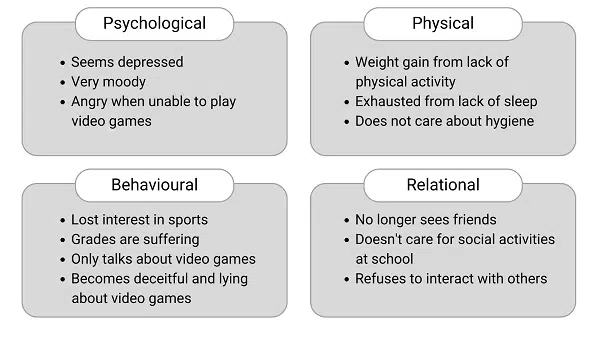
There are short- and long-term side effects of video game addiction, from sleeping disorders and overeating to long-term depression and social isolation. Taking our Gaming Addiction Test can help you determine now if your child has a video game addiction to make sure you can stop any long-term effects in the future.
The Psychological Signs of Video Game Addiction
Video games have a powerful psychological component in that they make us feel worthy when we overcome the challenge within the game. This feeling of worth can turn into a psychological addiction when a child’s mood shifts when he or she cannot play the game. Below is a list of psychological signs that may indicate an addiction problem:
- Depression and/or loneliness
- Getting angry, explosive, or unstable when asked to stop playing
- Moods shift from being calm and relaxed when playing video games to cranky and irritable when not playing.
- Anger, frustration, and withdrawal symptoms when unable to play video games.
- Every moment and conversation is preoccupied with the discussion of video games.
- Playing video games continues even when told about negative consequences.
Video game designers know how to tap into our psychological makeup by presenting our brain with an obstacle to overcome and then reward us for beating the obstacle. Video games are also a way for children to suppress negative emotions through gaming. However, there is an apparent link between playing and depression.
Review your chart – if your child is irritable, depressed, or angry when he or she is unable to play video games, psychological addiction may be present and should be tested. In fact, there has been a concerning link between video game addiction and depression that should be examined further before discussing the physical signs.
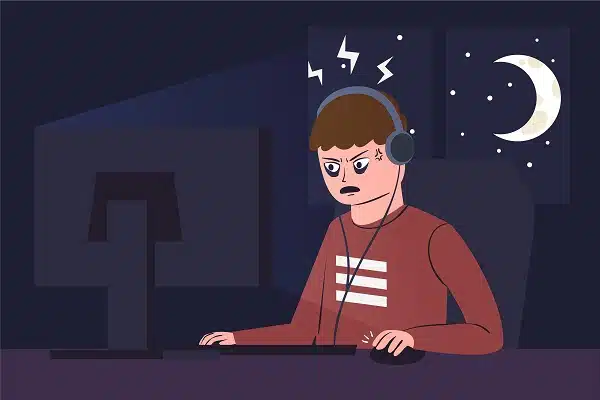
Depression and Video Game Addiction
Children suffering from video game addiction are more likely to feel depressed. In fact, parents have wondered if their children’s depression and anxiety needed antidepressants or medication once they found overplaying video games have had these negative psychological effects. Probably not, but it is still a serious psychological issue.
A New York Times article recently discussed two studies that linked video game addiction and depression. Thousands of students between third and eighth grade in Singapore were examined, and the studies found that the students who played more games – around 31 hours a week – were more depressed.
These students also suffered from both anxiety and social phobias in addition to depression. However, other experts have said the correlation is reversed, and a child who is already depressed may then turn to video game addiction. Whatever the case may be, if you marked “depression” on your Game Addiction Test, take it seriously.
Now that you have documented any psychological signs, there are also physical signs that can be detrimental to your child’s wellbeing over time. Make sure to mark down any physical signs you may see in your child due to overplaying video games. You can also note if any physical signs correlate to the psychological ones you have documented.
The Physical Signs of Video Game Addiction
There are numerous physical problems that can come from video game addiction. Children who play video games excessively will have the threat of being physically active much less over time. However, this is just one of many issues that can be harmful to your child’s physical state if they become addicted to video games:
- Poor hygiene if the child worries more about playing video games and less about appearance.
- Lack of physical activity due to video game addiction can lead to gaining weight and related issues.
- Carpal tunnel syndrome, which is numbness, tingling, or weakness in the hands, may occur from overusing the gaming controller or computer mouse.
- Fatigue and exhaustion from sleep deprivation.
- Other physical ailments: eye strain, migraines, and headaches, back aches, etc.
The physical effects of video game addiction can also lead to behavioral effects. For example, if your child is physically exhausted, he or she may have trouble paying attention in class, might act out or be irritable, or could become defensive and angry. These are just a few of the behavioral effects that are a result of other issues.
You will now move on the behavioral signs section of this Game Addiction Test. Again, many behavioral signs are closely related to both the psychological and physical signs already documented on your test. It is important to note whether the behavioral signs are a result of the first two sections or stand alone as an issue with possible addiction.
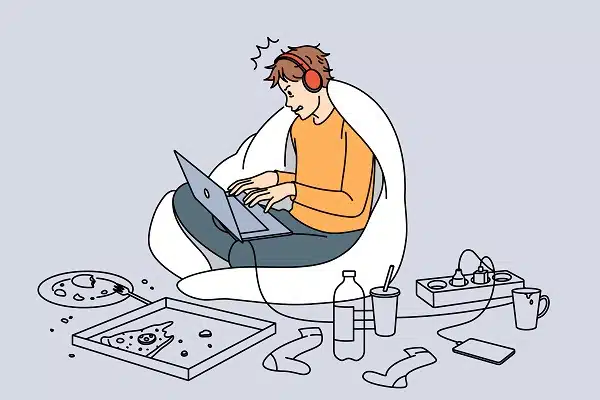
The Behavioral Signs of Video Game Addiction
People other than parents notice the negative behavioral signs when your child begins playing video games obsessively. These signs could be in school, at family events, or when interacting with friends. Some of the behavioral signs include:
- Playing for hours on end with no sense of the world around them.
- Talking about the game excessively and having it be the main focus in one’s life.
- Loss of interest in activities, hobbies, and interests that were once pleasurable.
- Disregarding school performance and responsibilities, which leads to grades and schoolwork to suffer.
- Increased aggression and defensiveness when told to stop playing or confronted with the possible gaming addiction.
A child’s behavior may begin to be deceitful due to the excessive gaming, such as lying about the amount of time spent or even stealing money to spend on the game. These and other negative behaviors will more than likely hurt the relationships of those around him or her. This means the video games have taken over the child’s life.
The last part of our Game Addiction Test will deal with relational signs. You will notice that you may write down your child’s signs that are similar to those from other sections. This is because you are now analyzing how the other sections you have tested have affected the relationships your child has with friends, family, and others.

The Relational Signs of Video Game Addiction
It is not a surprise that the psychological, physical, and behavioral effects from video game addiction will spill over negatively into a child’s relationships. As the child isolates oneself more and more, he or she will spend less time with friends and family. Conflicts may occur with parents, siblings, and friends who are concerned about the child.
Video game addiction may cause a child to stop playing sports, participating in school events, and interacting with others. This can affect relationships, as the child may begin to lose friends and no longer develop the social skills needed at this age. If your child is no longer involved in old interests, there could be a problem.
Now, some have said that multiplayer video games are social because children are working with others on a common goal. However, they are not getting the verbal and nonverbal communication skills that are vital in face-to-face interaction. Social isolation can deprive a child from developing the social skills needed later in life as an adult.
If gaming is affecting these areas of your child’s life, the next question is, how can you help? Like any other addiction, video game addiction can have dire consequences on your child’s development and lead to long-term effects. Video games should not be a reward or easily accessible, but if the problem is already there then action is needed.
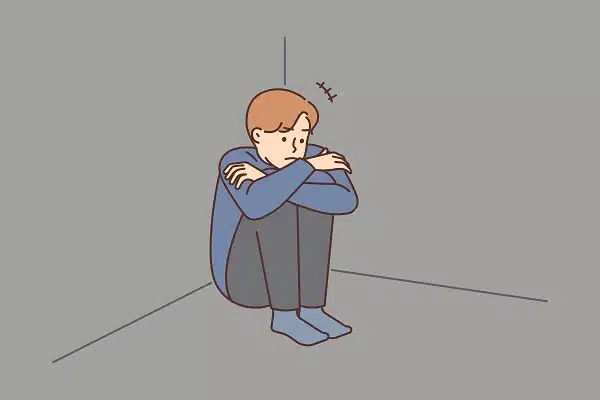
Tally the Results of your Game Addiction Test
Now you can tally the results of your child’s psychological, physical, behavioral, and relational signs that are resulting from video game play. Do you think there is a problem based on your results? If you answered “yes,” then you should consider steps to quelling your child’s game play.
There is no magic number that indicates whether your child will become addicted to video games. However, this Game Addiction Test is meant to be a self-assessment test to examine what symptoms your child may be expressing. If your test results are a matter of concern, keep reading on to see how we can help.
The next step is to figure out how you can help your child right away with a gaming addiction. There are many pieces of advice we will give below that can help wean your child from video games and work on their psychological, physical, behavioral, and relational issues you noted in our Game Addiction Test.
Then, you will need to research how to monitor and set time limits on your child’s play. As a parent, you can use the tips below in conjunction with a parental control tool to help your child work through this challenging time
How can I Help My Child With a Gaming Addiction?
Since gaming can be an addiction, some parents think that professional treatment is necessary. That is certainly not the case in most instances. Managing your child’s gaming should be the first step to weaning him or her off of the addiction. By encouraging other activities in a non-threatening way, your child may see life beyond the game.
- Encourage your child to get outside – physical activity can have a positive effect on all psychological, physical, behavioral, and relational issues of a child.
- Talk to your child about the game and find out why they enjoy it so much. Find out what you can replace those joys with every now and then.
- Do not just tell a child to stop playing a video game; instead, make sure you are replacing it with another activity (dinner, an outing, etc.).
- Do not make the child leave the game “in play,” as this will only create more anger and aggression. Allow your child to finish the game, but make sure the child knows it must be within a short period of time (no hour-long battles).
This first step in managing your child’s video game activity is all about finding a balance. However, this is only a first step and will not fix a gaming addiction in its entirety. In addition, do not replace gaming with something your child dislikes. If you tell a non-reader to “go read a book” instead of playing video games, a fight will ensue.
In addition, the above tips should be used in conjunction with a parental control tool that manages the computer gaming in the house. Our parental control tool Limit Launcher is able to detect video games by itself, even newly installed or released games. This way a parent doesn’t need to keep worrying about maintaining and managing their child’s devices constantly. Additionally, Limit Launcher respects a child’s right to privacy; Limit Launcher enables you to work with your child to develop a schedule and set time limits on their gaming.
Parental Control Tools Manage All Online and Offline Computer Gaming in a Non-Threatening Way
Now that you took the self-assessment test and examined which symptoms your child is expressing, the next step is to research how to monitor and set time limits on your child’s play. We will discuss some requirements we put together to make sure our monitoring tool is effective, non-threatening, and secure.
Parental control tools should not overtake your child’s life by turning off internet access or removing your child’s device for work and school. Limit Launcher allows your child to complete school work because it only focuses on gaming and other distractions, such as TikTok or YouTube. It sets time limits on games, social media and video content and then blocks these distractions when the time is over, so your child knows how much time is acceptable.
As the parent in charge, you will be able to manage the devices all from your smartphone. NOTE: Our Limit Launcher does not work on gaming consoles like Xbox, PlayStation, or the Nintendo Switch. Click here for an extensive list of game launchers and games we currently cover to make sure your child’s games make the list.
Conclusion
The point of this article is not to say that all video games are bad. In moderation, video games can have the benefits we previously discussed. However, if, after taking our Gaming Addiction Test, you have found your child has a problem, you should seriously consider limiting your child’s gaming time. This is where Limit Launcher App can help you, because it was built specifically for kids with parents in mind!
Gaming addiction is a serious medical issue that has short- and long-term psychological, physical, behavioral, and relational effects. Using Limit Launcher parental controls can be a healthy way to manage your child’s online computer gaming while also helping them end a possible gaming addiction.
The result of our Gaming Addiction Test should be to determine whether or not your child may have a problem with video games. If your answer is yes, do not panic. You now have the tools to talk to your child and set parental controls so that he or she develops a healthy outlook on gaming now and in the future.

